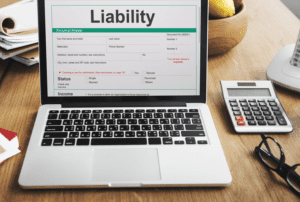
Financial lingo can be confusing but it’s very important to grasp for those who are interested Medical Billing Process in investing in products like stocks, bonds, or mutual funds. Market cap is a primary indicator of company size and is used to compare firms across industries, helping investors assess risk and growth potential. Shares outstanding, however, are more relevant for financial metrics related to dilution effects. Stock options allow the holder to purchase shares at a predetermined price. Warrants function like options but are issued directly by the company, often as incentives in financing deals. Market capitalization, also known as market cap, is a monetary value that changes every day as the share price of a company changes every day.

Company

XYZ would have to sell 100 shares from its treasury to the warrant holders if all these warrants are activated. Shares that can be freely bought and sold by public investors are the float. This value changes depending on whether the company wants to repurchase shares from the market or sell more of its authorized shares from within its treasury. Outstanding shares refer to the authorized shares that have been issued to a company’s shareholders, excluding the treasury stock retained by the company itself. The resulting number total number of shares outstanding shows the total number of shares held by all market participants.

How does Outstanding Shares work?
- Generally, both of these figures can be found on a company’s balance sheet.
- Whether potential shares are considered anti-dilutive depends on the period.
- That company would be worth magnitudes more than a company with 10,000 shares each worth $100.
- Let’s take a look at what the difference is between market capitalization and shares outstanding.
- A company may have 100 million shares outstanding, but if 95 million are held by insiders and institutions, the float of only five million may constrain the stock’s liquidity.
They cannot vote in most cases; however, there are exceptions in certain situations. For the most part, there’s no need to calculate the number of shares a firm has because the firm itself will disclose the number itself. However, there are still some ways you can figure out share counts as an exercise to confirm your understanding of how the company is capitalized. A company is limited to issuing only the quantity of shares it’s authorized to issue.
Implications of a Stock Split
Outstanding shares are the shares that have been issued and are currently held by investors. Options and warrants are one aspect of the difference between basic shares outstanding and diluted shares outstanding. Understanding how to calculate outstanding shares for a public company would appear to be a simple matter. Outstanding shares and float stock are both key indicators used to evaluate a company’s stock, but they represent distinct aspects of the company’s ownership structure.

Understanding Shares Outstanding

Dividend distributions and voting in the general meeting of shareholders are calculated according to this number. The fully diluted shares outstanding count, on the other hand, includes diluting securities, such as warrants, capital notes or convertibles. If the company has any diluting securities, this indicates the potential future increased number of shares outstanding. To illustrate this, let’s take a hypothetical company, ABC Inc., which has 2 million shares outstanding trading at $150 per share, leading to a market capitalization of $300 million.
Issued shares are the total number of shares the company sold or granted. They also include outstanding shares and shares held in the company’s treasury. When these reserved shares have been assigned to employees, contractors, or advisors through a stock option or grant from the SIP, they are allocated shares. According to an amendment filed on Aug. 3, 2020, Apple indicated that it is “authorized to issue one class of shares.” These shares fall under the category CARES Act of its common stock. The filing also indicated that existing shares would automatically be split into four.
Share Repurchase Programs
Understanding these actions helps investors accurately assess share performance and company strategy. Market capitalization is the total value of a company’s outstanding shares, calculated by multiplying the stock price by the number of shares outstanding. Outstanding and treasury shares are two distinct terms relating to a company’s equity. Outstanding shares refer to the total number of shares issued and currently held by shareholders.




اخر التعليقات